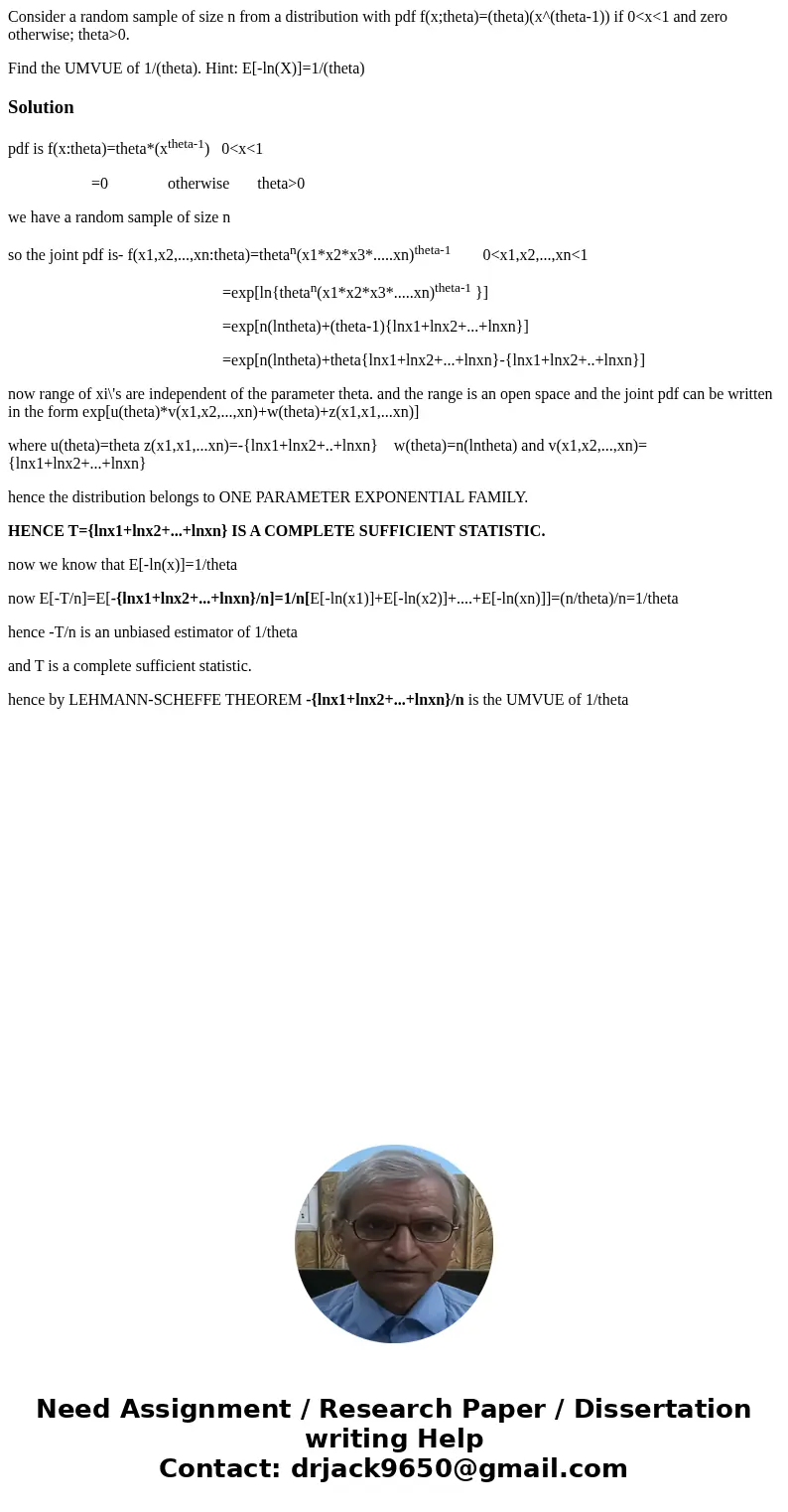Consider a random sample of size n from a distribution with
Consider a random sample of size n from a distribution with pdf f(x;theta)=(theta)(x^(theta-1)) if 0<x<1 and zero otherwise; theta>0.
Find the UMVUE of 1/(theta). Hint: E[-ln(X)]=1/(theta)
Solution
pdf is f(x:theta)=theta*(xtheta-1) 0<x<1
=0 otherwise theta>0
we have a random sample of size n
so the joint pdf is- f(x1,x2,...,xn:theta)=thetan(x1*x2*x3*.....xn)theta-1 0<x1,x2,...,xn<1
=exp[ln{thetan(x1*x2*x3*.....xn)theta-1 }]
=exp[n(lntheta)+(theta-1){lnx1+lnx2+...+lnxn}]
=exp[n(lntheta)+theta{lnx1+lnx2+...+lnxn}-{lnx1+lnx2+..+lnxn}]
now range of xi\'s are independent of the parameter theta. and the range is an open space and the joint pdf can be written in the form exp[u(theta)*v(x1,x2,...,xn)+w(theta)+z(x1,x1,...xn)]
where u(theta)=theta z(x1,x1,...xn)=-{lnx1+lnx2+..+lnxn} w(theta)=n(lntheta) and v(x1,x2,...,xn)={lnx1+lnx2+...+lnxn}
hence the distribution belongs to ONE PARAMETER EXPONENTIAL FAMILY.
HENCE T={lnx1+lnx2+...+lnxn} IS A COMPLETE SUFFICIENT STATISTIC.
now we know that E[-ln(x)]=1/theta
now E[-T/n]=E[-{lnx1+lnx2+...+lnxn}/n]=1/n[E[-ln(x1)]+E[-ln(x2)]+....+E[-ln(xn)]]=(n/theta)/n=1/theta
hence -T/n is an unbiased estimator of 1/theta
and T is a complete sufficient statistic.
hence by LEHMANN-SCHEFFE THEOREM -{lnx1+lnx2+...+lnxn}/n is the UMVUE of 1/theta

 Homework Sourse
Homework Sourse